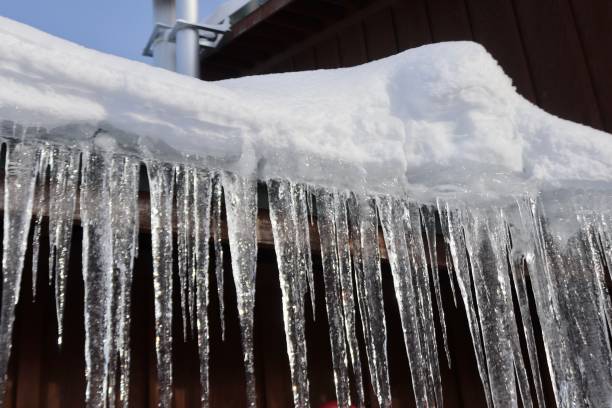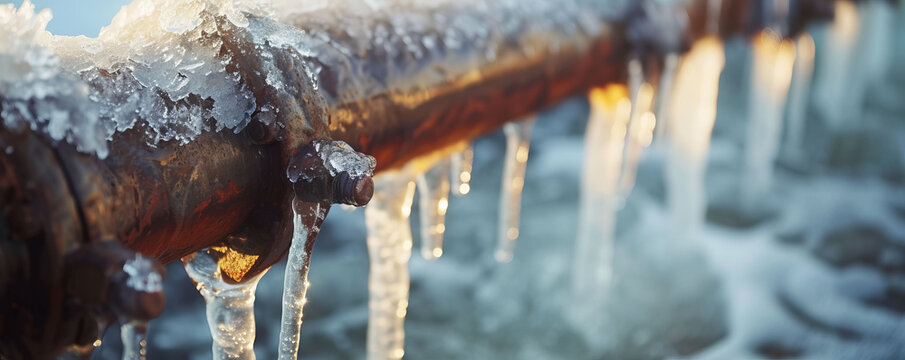Crucial Advice for Avoiding Frozen Plumbing in Cold Weather Seasons
Crucial Advice for Avoiding Frozen Plumbing in Cold Weather Seasons
Blog Article
This great article which follows on the subject of Preventing and dealing with frozen pipes is really entertaining. You should see for yourself.

Cold weather can ruin your plumbing, specifically by freezing pipelines. Below's how to avoid it from taking place and what to do if it does.
Intro
As temperature levels decrease, the threat of icy pipes rises, potentially resulting in pricey repairs and water damages. Comprehending just how to stop frozen pipes is crucial for property owners in cool climates.
Avoidance Tips
Protecting vulnerable pipes
Cover pipes in insulation sleeves or use warm tape to secure them from freezing temperature levels. Concentrate on pipes in unheated or exterior locations of the home.
Home heating techniques
Maintain interior areas sufficiently warmed, specifically areas with pipes. Open cabinet doors to enable warm air to flow around pipes under sinks.
How to identify frozen pipelines
Seek reduced water circulation from taps, uncommon smells or noises from pipelines, and noticeable frost on revealed pipelines.
Long-Term Solutions
Structural changes
Consider rerouting pipelines far from exterior wall surfaces or unheated locations. Include additional insulation to attics, basements, and crawl spaces.
Upgrading insulation
Purchase premium insulation for pipelines, attic rooms, and walls. Correct insulation helps keep consistent temperatures and lowers the danger of icy pipelines.
Safeguarding Exterior Plumbing
Garden pipes and exterior taps
Separate and drain pipes garden hoses before winter months. Install frost-proof faucets or cover outdoor taps with shielded caps.
Comprehending Frozen Pipes
What causes pipes to freeze?
Pipelines freeze when exposed to temperatures below 32 ° F (0 ° C) for expanded durations. As water inside the pipes ices up, it increases, putting pressure on the pipe wall surfaces and potentially creating them to rupture.
Threats and damages
Icy pipes can bring about water system disturbances, residential property damages, and costly fixings. Ruptured pipes can flood homes and cause extensive structural damages.
Indications of Frozen Pipes
Recognizing icy pipes early can avoid them from breaking.
What to Do If Your Pipes Freeze
Immediate activities to take
If you presume icy pipelines, keep faucets open up to eliminate stress as the ice melts. Make use of a hairdryer or towels taken in hot water to thaw pipelines gradually.
Verdict
Avoiding icy pipes requires proactive measures and quick feedbacks. By recognizing the causes, indications, and preventive measures, home owners can protect their pipes during cold weather.
6 Proven Ways to Prevent Frozen Pipes and Protect Your Home
Disconnect and Drain Garden Hoses
Before winter arrives, start by disconnecting your garden hoses and draining any remaining water. Close the shut-off valves that supply outdoor hose bibs and leave the outdoor faucet open to allow any residual water to drain. For extra protection, consider using faucet covers throughout the colder months. It’s also important to drain water from any sprinkler supply lines following the manufacturer’s directions.
Insulate Exposed Pipes
Insulating your pipes is an effective way to prevent freezing. Pipe insulation is readily available at home improvement stores and is relatively inexpensive. Pay close attention to pipes in unheated areas such as the attic, basement, crawl spaces, or garage. Apply foam insulation generously to create a buffer against the cold. You can also wrap your pipes in heat tape or thermostat-controlled heat cables for added warmth.
Seal Air Leaks
Inspect your home for any cracks or openings that could let in cold air. Seal any holes around the piping in interior or exterior walls, as well as the sill plates where your home rests on its foundation. Additionally, make sure to keep your garage door closed unless you’re entering or exiting. Leaving it open creates a significant air leak that can lead to frozen pipes.
Allow Warm Air Circulation
During cold snaps, it’s essential to allow warm air to circulate evenly throughout your home. Leave interior doors ajar to promote better airflow. Open kitchen and bathroom cabinets to help distribute heat consistently around the rooms. If you have small children or pets, be sure to remove any household chemicals or potentially harmful cleaners from open cabinets for safety.
Let Faucets Drip
A small trickle of water can make a big difference in preventing ice formation inside your pipes. When temperatures drop significantly, start a drip of water from all faucets served by exposed pipes. This continuous flow helps prevent the water from freezing. Additionally, running a few faucets slightly can relieve pressure inside the pipes, reducing the chances of a rupture if the water inside does freeze.
https://choateshvac.com/6-proven-ways-to-prevent-frozen-pipes-and-protect-your-home/

We are very fascinated with Helpful Tips to Prevent Frozen Pipes this Winter and I really hope you enjoyed the article. If you enjoyed our blog entry please be sure to share it. Thanks so much for taking the time to read it.
Booking Report this page